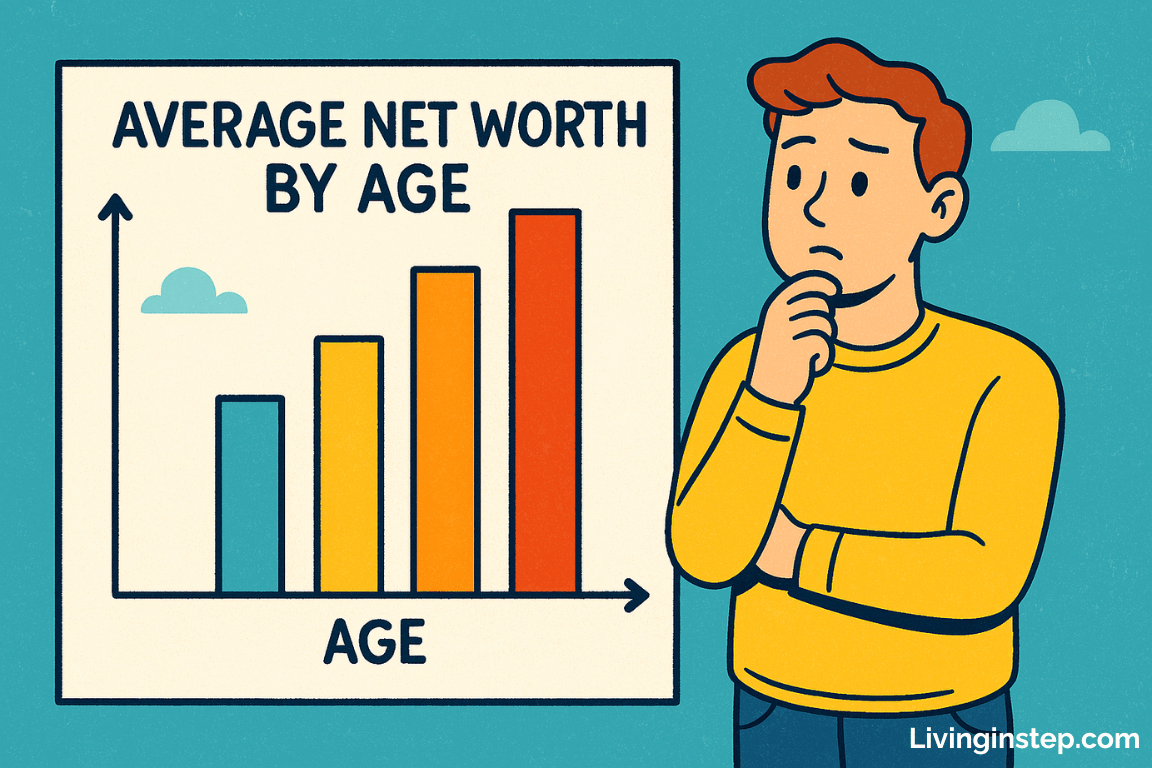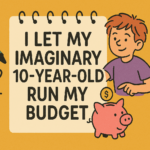Have you ever wondered if you’re actually doing okay financially or just behind and pretending not to be?
There’s something definitely personal seeing numbers related to your age
It’s not just data
It feels like a scorecard
A mirror into your life
A quiet comparison you didn’t ask for—but can’t stop looking at
The Federal Reserve’s latest data on net worth by age
doesn’t just show numbers
It shows where people are starting
stalling
or quietly getting ahead
And depending on where you land
you might feel better
worse
or just a little surprised
First, what is net worth?
Net worth isn’t just how much you earn
It’s how much you keep
It’s everything you own—cash, investments, home equity
minus everything you owe—mortgages, loans, credit cards
It’s the number that tells the truth
Even when income doesn’t
And it shifts dramatically with age
The Federal Reserve’s numbers (U.S. data)
According to the most recent figures:
- Under 35
Average net worth: $76,300
Median: $13,900
(Big gap—meaning a few high earners skew the average. Most have very little.) - Ages 35–44
Average net worth: $436,200
Median: $91,300
(This is often when income rises—but debt is still high.) - Ages 45–54
Average net worth: $833,200
Median: $168,600
(For many, this is peak earning and saving years—but not always.) - Ages 55–64
Average net worth: $1,175,900
Median: $212,500
(Closer to retirement—but the median shows most aren’t wealthy.) - Ages 65–74
Average net worth: $1,217,700
Median: $266,400
(Often funded by home equity, pensions, or downsizing.) - 75 and up
Average net worth: $977,600
Median: $254,800
(Many begin drawing down savings—net worth typically declines.)
Why the averages don’t tell the full story
That gap between average and median?
Why does it matter?
Because averages are inflated by outliers
A few ultra-high net worth individuals can skew the data upwards
Which means most people aren’t anywhere near the average
The median is closer to reality
It’s where the middle actually sits
So if you’re 40 and your net worth isn’t $400K?
You’re not behind
You’re in the real world
Net worth is about more than just money
It’s about timing
Access
Debt
Support
Health
Opportunity
And luck—yes, luck plays a role too
Not everyone starts from the same place
Not everyone gets to keep what they earn
And not everyone has the privilege of a clean financial slate
So stacking yourself up against someone else’s number
without knowing their story
doesn’t make much sense
The emotional weight of comparison
Seeing these numbers can create some strange emotions
You might feel proud
Ashamed
Motivated
Or quietly panicked
But here’s the truth:
Net worth is a snapshot
Not a verdict
It changes
Sometimes fast
Sometimes slowly
And it says more about circumstances than it does about value
So how do you actually stack up?
Honestly?
That’s not the most important question
Because what matters more
is not where you are
but where you’re going
and how sustainable your progress feels
If your net worth is growing
even slowly
you’re doing better than you think
If it’s stalled
that’s okay too
There’s still time
There’s always time
To shift
Adjust
Try something different
Net worth is just one number
It’s not your worth
It’s not your identity
And it’s not the only way to measure financial peace
But it’s a useful mirror
One that’s better viewed with context
Not comparison
Note: This content is for entertainment purposes only and is not financial advice. Please consult a qualified financial advisor for guidance specific to your situation.








